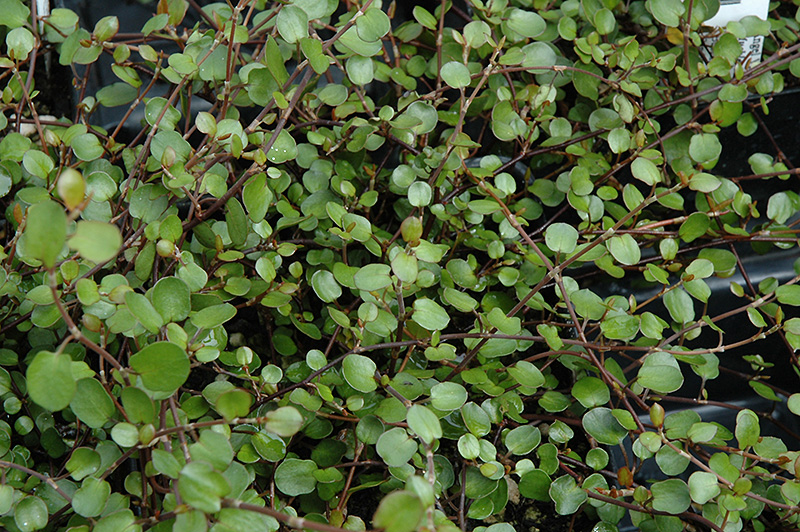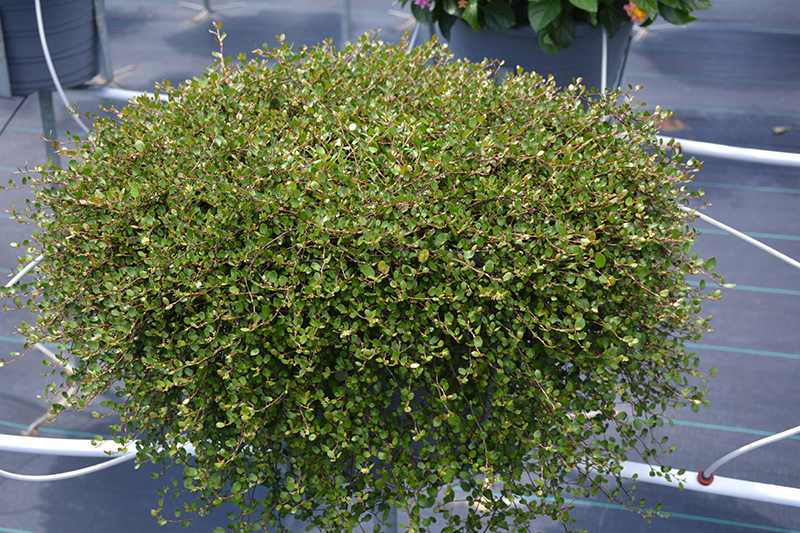Height: 20 feet
Spread: 5 feet
Sunlight:
![]()
![]()
Hardiness Zone: 7b
Description:
There are many uses for this versatile vine; covered with charming tiny round leaves it forms a dense mat and is useful as a groundcover, over walls, on trellises, for topiary and much more
Ornamental Features
Wire Vine is primarily valued in the landscape for its broadly spreading habit of growth. It has attractive light green evergreen foliage. The small glossy round leaves are highly ornamental and remain light green throughout the winter.
Landscape Attributes
Wire Vine is a dense multi-stemmed evergreen woody vine with a twining and trailing habit of growth. Its relatively fine texture sets it apart from other landscape plants with less refined foliage.
This woody vine will require occasional maintenance and upkeep, and can be pruned at anytime. Gardeners should be aware of the following characteristic(s) that may warrant special consideration;
- Spreading
Wire Vine is recommended for the following landscape applications;
- Accent
- Hedges/Screening
- General Garden Use
- Groundcover
- Topiary
- Container Planting
Planting & Growing
Wire Vine will grow to be about 20 feet tall at maturity, with a spread of 5 feet. As a climbing vine, it tends to be leggy near the base and should be underplanted with low-growing facer plants. It should be planted near a fence, trellis or other landscape structure where it can be trained to grow upwards on it, or allowed to trail off a retaining wall or slope. It grows at a fast rate, and under ideal conditions can be expected to live for approximately 30 years.
This woody vine does best in full sun to partial shade. It does best in average to evenly moist conditions, but will not tolerate standing water. It may require supplemental watering during periods of drought or extended heat. It is not particular as to soil type or pH, and is able to handle environmental salt. It is somewhat tolerant of urban pollution. This species is not originally from North America.
Wire Vine makes a fine choice for the outdoor landscape, but it is also well-suited for use in outdoor pots and containers. Because of its spreading habit of growth, it is ideally suited for use as a 'spiller' in the 'spiller-thriller-filler' container combination; plant it near the edges where it can spill gracefully over the pot. It is even sizeable enough that it can be grown alone in a suitable container. Note that when grown in a container, it may not perform exactly as indicated on the tag - this is to be expected. Also note that when growing plants in outdoor containers and baskets, they may require more frequent waterings than they would in the yard or garden.


